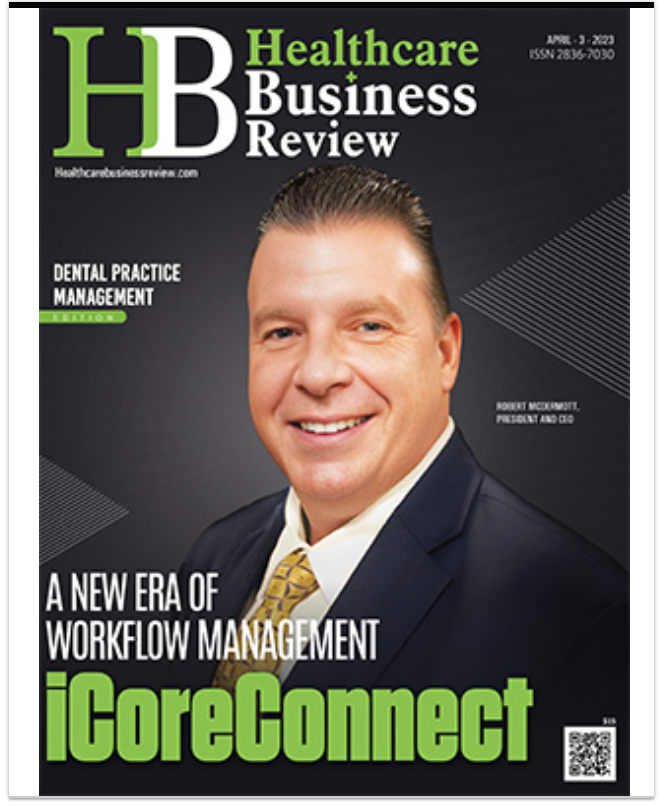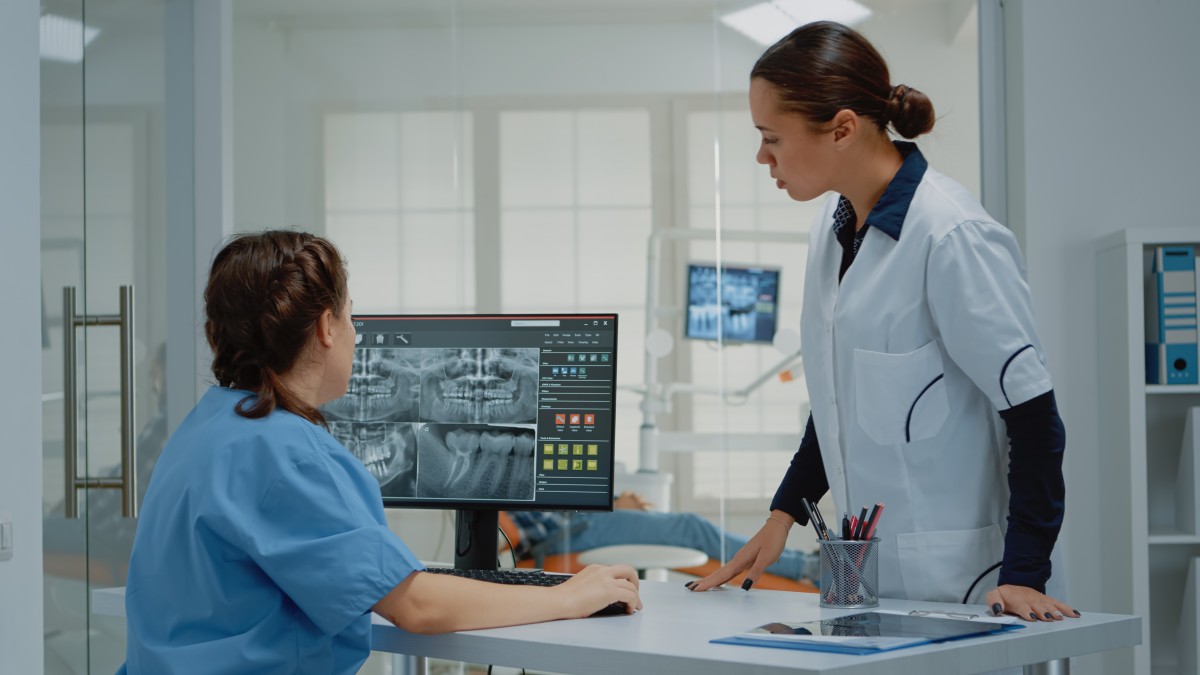Using Patient Education Videos to Support Preventive Care Strategies
As a healthcare provider, you know prevention saves lives. From routine screenings and lifestyle counseling to vaccinations and early detection,...
4 min read
Robert McDermott Feb 16, 2023 12:00:00 PM
 There are several administrative aspects of running a dental or medical practice that, though they occur behind the scenes, a practice would grind to a halt without. Among those is medical coding. It can be a time-consuming and burdensome task as it demands two things often difficult to deliver at the same time: speed and accuracy.
There are several administrative aspects of running a dental or medical practice that, though they occur behind the scenes, a practice would grind to a halt without. Among those is medical coding. It can be a time-consuming and burdensome task as it demands two things often difficult to deliver at the same time: speed and accuracy.
The specificity required for accurate medical coding can place a large demand on you and your staff’s time. And if you’re like most practices, finding additional staff, or adding to overhead, isn’t often an option. So how can you meet the challenges that medical coding presents while still improving your practice and ensuring steady revenue flow?
Quick Links
Medical coding takes often-complex healthcare information including a diagnosis, treatment modalities and services, medical equipment, and procedures from medical reports and records and converts them into an alphanumeric code which is then used for billing. Effectively, it has created a medical shorthand so providers can communicate clearly and effectively with insurance or other healthcare payers.
ICD-10 stands for International Classification of Diseases, 10th revision. Created by the Centers for Medicare & Medicaid Services (CMS) and the National Center for Health Statistics (NCHS), ICD-10 is intended to create a universal coding system for healthcare providers and insurers. It is a fairly complex classification system of detailed and specific codes for all known conditions and diseases, health problems, symptoms, comorbidities, injuries, and the potential external causes of those injuries and diseases.
 Why Accurate Medical Coding Matters
Why Accurate Medical Coding MattersFirst and foremost, for most medical practices, accurate medical coding is required for reimbursement. Inaccurate codes may result in claim denials, delayed payments, or even incomplete payments. Accurate medical coding is required for cash flow and revenue and, without it, many practices may find themselves short on funds when it’s completely avoidable.
In addition to ensuring reliable and accurate revenue and reimbursements for your practice, medical codes ensure that a payer or patient is not paying too much or even paying for incorrect procedures or treatments.
To start, ICD-10 codes are notoriously complicated. In fact, there are nearly 70,000 of them, and the slightest factor could mean the difference between one code and the other. For example, even the number of visits a particular patient has had related to the specific illness or injury might change the code. So yes, they’re complicated.
With so many codes, memorizing them all isn’t feasible, which means that searching for codes can be a time-consuming process that impacts overall efficiency. Additionally, medical coders must work from a doctor or nurse’s notes and determine what codes to apply to the diagnosis or treatment. Sometimes, a patient’s medical history, symptoms, pre-existing conditions, and more make for a very complex medical and coding situation. This means they must be particularly skilled at assessing a wide variety of factors and applying the best-suited medical code. That takes experience and a detailed knowledge of both medical diagnoses and ICD-10 codes. Again, efficiency may suffer as well as accuracy.
And, in the long run, that accuracy impacts your bottom line as well as care and patient satisfaction. In fact, denials reached approximately 17% in 2021 and, of claims denied, nearly 60% are not resubmitted. That’s lost revenue. And, it costs an estimated $25 per claim to resubmit. For hospitals, that goes up to $181. Inaccurate medical coding can present a huge financial challenge for many practices.
And, just when your staff has familiarized themselves with some existing ICD-10 codes, they’re subject to change again. Sisyphean? Herculean? The task of medical coding is not easy.
 How to Help Significantly Reduce Medical Coding Challenges
How to Help Significantly Reduce Medical Coding ChallengesMedical coding has been around for a long time, but has grown increasingly complex. As ICD-10 codes are updated, more and more codes will continue to be added, which greatly helps with the medical charting and reimbursement process but makes it far more challenging on the doctors, coders and billers.
Enter computer assisted coding software, which uses a built-in database of relevant information to guide the user through the coding process, including various conditions and factors which impact the eventual code. This type of coding software can not only save time, but also improve accuracy by reducing manual work.
The software must also be kept up to date with the latest ICD-10 information, which can often require a manual component if it is being run from an on-location server. However, with cloud-based computer assisted coding software, ICD-10 codes can be automatically updated and kept in compliance with the latest CMS coding and billing changes. No matter your location, you can always access the current, complete code database.
The highest-performing cloud-based coding software reduces the process to just a few clicks, often prompting you at every step. This can dramatically increase accuracy and expediency. Utilizing cloud-based software that further identifies and prompts you about comorbidities associated with certain conditions provides you with greater information to make well-informed decisions around your patient care. This documented information increases the accuracy of the billable data the payer needs, supporting a strong revenue cycle.
The most strategic cloud-based coding software will integrate with your EMR or can be used as an easy standalone resource for quick, accurate coding. Integration prevents the extra effort and potential errors of repeatedly entering patient data.
To put it into an even simpler framework, think of cloud-based medical coding software as the ultimate assistant who is always at your side and who knows everything there is to know about medical coding. They not only know the ICD-10 codes you need, but also all the right questions to ask to make sure all important factors are considered, codes are accurate and fewer claims are denied. This type of software can dramatically reduce or even replace the burden of hiring new or additional coding staff. Your practice can, instead, rely on existing staff, improving their flexibility and maximizing their time.
Meet iCoreConnect’s iCoreCodeGenius. iCoreCodeGenius is designed to help your practice, regardless of size, tackle coding challenges by providing an up-to-date code database that prompts users through all potentially-related factors to help your staff arrive at accurate and complete codes. Additionally, iCoreCodeGenius uses smart, predictive text to help zero in on the codes you need quickly. It’s easy to use so you can share the coding burden across your administrative staff and avoid costly backlogs.
If you’re ready to see what having a coding genius on your team looks like, book a demo with the iCoreConnect team and see what iCoreCodeGenius can do for you, your practice, and your staff efficiency.

As a healthcare provider, you know prevention saves lives. From routine screenings and lifestyle counseling to vaccinations and early detection,...

There’s no denying that the AI boom is here. The American Medical Association reports that 66% of physicians are currently using artificial...

If only managing your practice’s revenue cycle came with a crystal ball. You could spot claim denials before they happen, predict when patients might...

When you set out to become a healthcare provider, you probably didn’t anticipate that every practice owner could benefit from a business degree. But...

Healthcare Business Review features a profile of iCoreConnect President and CEO, Robert McDermott.

Few people seek out dental careers hoping for countless hours coding, talking to insurance companies to correct coding issues, or, in the worst...